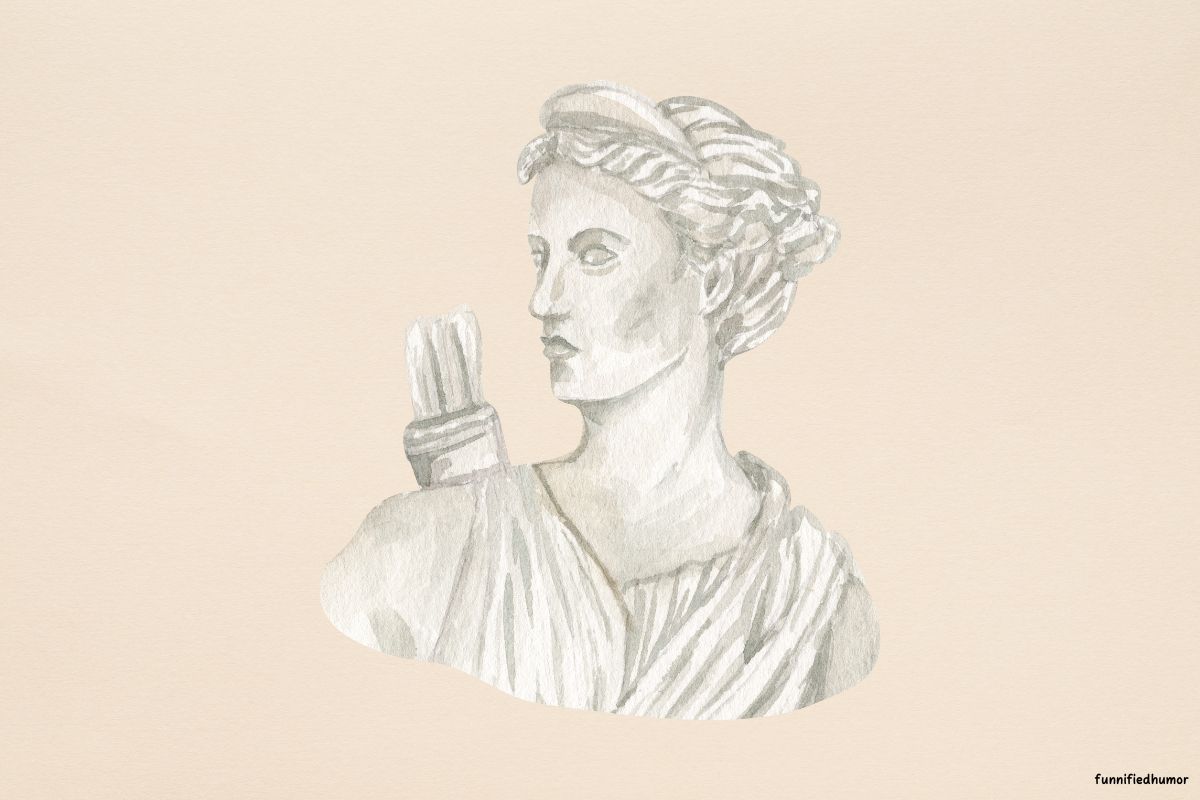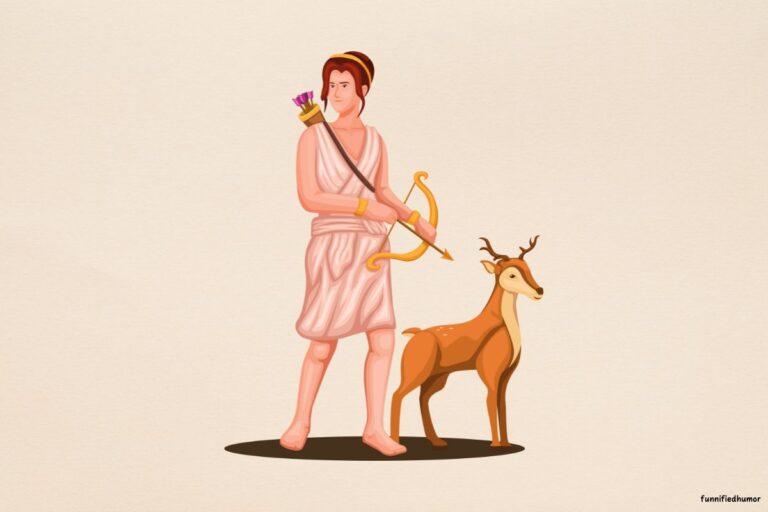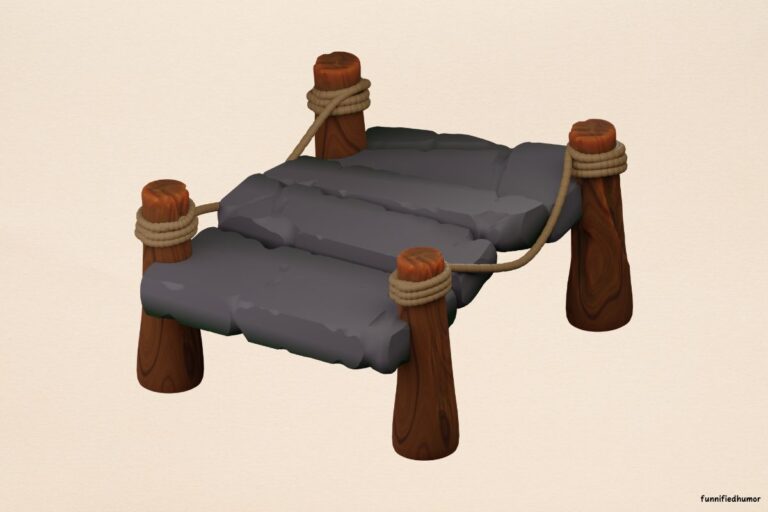4 Epic Stories about Athena

From the shimmering halls of Olympus to the storied streets of ancient Athens, tales have been woven through time, capturing the essence and mysteries of the gods. Among them stands Athena, the Greek goddess of wisdom, courage, and warfare—a deity whose narrative has captivated and inspired countless generations.
The tales surrounding her speak of her fierce determination, unparalleled intellect, and the grace with which she influenced mortal and immortal affairs alike.
In today’s post, we journey back to the cradle of Western civilization, pulling back the curtains of history to share some of the most intriguing and timeless stories about Athena.
Whether you’re a mythology aficionado or a curious soul, these tales are bound to enthrall, shedding light on the enigmatic figure that has left an indelible mark on human history.
Stories about Athena
1. Athena, The Goddess of Wisdom
Long ago, in a world brimming with gods, goddesses, and magical creatures, there was a powerful goddess named Athena. She wasn’t just any goddess – she was the goddess of wisdom, courage, and warfare. But she was not a lover of violence or battles; instead, she valued intelligence and wit above all else.
Now, Athena was born in a truly unique way. One day, Zeus, the king of the gods, had a throbbing headache. Nothing he did made it go away. So, Hephaestus, the god of blacksmiths, took a swing with his ax and split open Zeus’s head. Out leapt Athena, fully grown and in a full set of armor! What an entrance!
With her wise eyes, she observed the world of humans below, always curious about their actions and intentions. She loved helping and guiding them, teaching them the ways of knowledge and creativity.
One day, Athena looked down on a beautiful yet unnamed land by the sea. Both she and Poseidon, the god of the sea, wanted to become the patron deity of this city. They decided to hold a competition: each would give a gift to the city, and the citizens would choose which gift they preferred.
Poseidon went first. With a mighty thrust of his trident, he struck the ground, and out sprang a well of saltwater. It was an impressive display of his power, but there was a problem—the water was salty and undrinkable.
Then came Athena’s turn. She planted a small seed in the ground, which rapidly grew into a tall and sturdy olive tree. The olive tree provided the people with food in the form of olives, wood for their homes, and oil for their lamps.
The people of the city were overjoyed with Athena’s gift. Not only did it provide sustenance, but it also symbolized peace and prosperity. With gratitude, they named their city after the wise goddess, calling it Athens.
Athena, delighted with the honor, watched over Athens and its citizens, ensuring that it flourished and became a beacon of knowledge, wisdom, and democracy in the ancient world.
And so, the city of Athens thrived under Athena’s protection, with her owl often seen as a symbol of wisdom and knowledge. Children would often be told the story of how their magnificent city earned its name and the divine protection of the wise Athena.
Whenever the people of Athens faced challenges, they remembered the story of Athena’s wisdom and the olive tree. It was a reminder that with creativity, intelligence, and peace, any obstacle could be overcome.
And that, dear children, is the tale of Athena and the city that was named in her honor. So, the next time you see an olive tree or an owl, remember the wise Athena and the great city of Athens!

2. Athena and Medusa: A Tale of Beauty, Betrayal, and Transformation
Medusa was once a beautiful mortal woman, known for her stunning hair. She served as a priestess in the temple of Athena, the virgin goddess of wisdom and war. As a priestess, Medusa was meant to remain chaste and devoted to the goddess.
However, Poseidon, the powerful god of the sea, was taken by Medusa’s beauty. He pursued her, and they desecrated Athena’s temple. Furious at this act of violation in her sacred space, and possibly envious of the attention Poseidon had shown Medusa, Athena decided to punish the priestess. But instead of punishing Poseidon (since gods often escaped consequences due to their power and status), Athena transformed Medusa.
She turned Medusa’s beautiful hair into a writhing mass of venomous snakes. Furthermore, Athena cursed Medusa so that anyone who looked directly into her eyes would turn to stone. With this curse, Medusa became one of the Gorgons.
Distraught and isolated due to her new appearance and the curse, Medusa fled and took refuge in a distant island, where she lived a secluded life. Her reputation grew, and many warriors tried to slay her to earn fame, but they ended up turned into stone statues.
The story of Medusa doesn’t end here. Later, the hero Perseus is tasked with a seemingly impossible mission: to bring back the head of Medusa. With divine help, including a mirrored shield from Athena, winged sandals from Hermes, and other magical items, Perseus manages to decapitate Medusa without looking directly at her. He uses her head, with its petrifying gaze, as a weapon in subsequent adventures before gifting it to Athena, who places it on her shield, the Aegis, as a protective emblem.
This tale, like many from Greek mythology, delves into themes of jealousy, power dynamics, and transformation. It’s a story that has been revisited and reinterpreted many times throughout history in various forms of art and literature.

3. Athena and Arachne: A Contest of Skill
Arachne was a gifted mortal weaver, so skilled that the clothes and tapestries she made were said to be more beautiful than anything anyone had ever seen. Her renown spread far and wide, and people came from all over to see her work. Proud of her abilities, Arachne began to boast that her weaving was even better than Athena’s, the goddess of wisdom and crafts, including weaving.
Word of Arachne’s claim reached Athena. The goddess was not pleased to hear of a mortal claiming to be better than her, but she decided to give Arachne a chance to prove her skill. Disguising herself as an old woman, Athena visited Arachne and warned her about the dangers of pride and challenging the gods. But Arachne scoffed, declaring that she would happily compete against Athena in a weaving contest and prove her superiority.
Recognizing Arachne’s stubbornness, Athena revealed her true divine form. The two then engaged in a weaving contest. Athena wove a tapestry depicting the gods in all their glory, showing their might and the dire consequences faced by mortals who dared to challenge or disrespect them.
Arachne, in contrast, wove a tapestry that depicted the gods’ misdeeds and indiscretions, highlighting their flaws and moments of cruelty towards mortals.
When the contest was finished, even Athena had to admit that Arachne’s work was flawless. But she was enraged by the disrespectful scenes Arachne had chosen to portray. In a fit of anger, Athena destroyed Arachne’s tapestry and loom.
Distraught and ashamed, Arachne tried to hang herself. Taking pity on her, Athena decided to save Arachne but transformed her into a spider, condemning her and her descendants to weave their webs for eternity. This is the mythological explanation for the origins of spiders and their exceptional weaving abilities.
The story serves as a cautionary tale about the perils of excessive pride (hubris) and the risks of challenging the gods. It’s also a reflection on art, creativity, and the power dynamics between mortals and deities.

4. Athena and the Secret of the Flute
In the verdant meadows of ancient Greece, the playful satyr Marsyas discovered a unique instrument: a double-fluted aulos. But where did such a curious instrument come from? It was, in fact, the creation of none other than Athena, the wise and crafty goddess of wisdom.
Athena loved to learn and explore, always seeking new ways to enrich the world of gods and mortals alike. One day, as she wandered by a riverside, the whispering winds and the melodious flow of the water inspired her to create an instrument that could capture such enchanting sounds.
Taking reeds from the riverbank, Athena fashioned the first aulos. With it, she could mimic the songs of birds, the rustling of leaves, and even the distant murmurs of the oceans. Proud of her creation, Athena played her aulos atop Mount Olympus, hoping to entertain her fellow gods.
However, as she played, the other gods, especially the mischievous god Hermes, began to laugh. When Athena played the flute, her cheeks puffed out comically, and to Hermes, it seemed undignified. Embarrassed, Athena looked at her reflection in the shimmering waters of a heavenly pool. Realizing that playing the aulos made her appear less graceful, she decided to discard it, leaving it for any who might want it.
Marsyas, the satyr, found the aulos and quickly mastered its melodies. He became so adept that he even dared to challenge the god Apollo, a master of music, to a musical duel. But that’s a story for another day.
Athena’s brief adventure with the flute reminds us that even the gods can feel self-conscious. But their discarded passions can become treasures for others. In our own lives, one person’s overlooked hobby or interest might become another’s lifelong passion.
And so, every time the melodies of a flute grace the air, some say it carries with it Athena’s original inspiration and the gentle reminder that beauty and purpose can be found in unexpected places.






